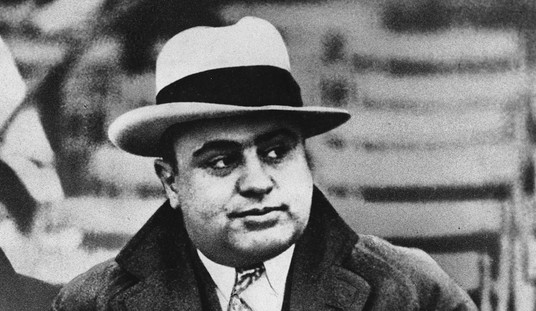Over the last week of stories on the NSA’s surveillance programs, many critics have pointed out that the dot-connecting efforts somehow missed the Tsarnaev brothers before the Boston Marathon bombing, even after being flagged by the Russians as potential threats and after Tamerlan Tsarnaev spent six months in Dagestan. But did the NSA find an alleged accomplice to the Tsarnaevs? FBI Director Robert Mueller’s testimony yesterday indicates that the answer seems to be yes, or that the FBI would like to argue that it did:
FBI Director Robert S. Mueller III acknowledged on Thursday that a lack of formal communication within the agency may have prevented investigators from alerting Russian authorities that Tamerlan Tsarnaev had returned to Russia before the Marathon bombing, information that Russian officials say could have averted the act of terrorism.
Mueller also told the House Judiciary Committee that the government’s recently exposed surveillance techniques, which have been criticized as too sweeping, can be credited with helping spur an investigation of an associate of Tsarnaev, Ibragim Todashev, 27. Todashev was shot to death by an FBI agent in Florida last month during an interview related to his and Tsarnaev’s possible involvement in a Waltham triple homicide. Mueller declined to comment on the specific circumstances during Thursday’s hearing, citing an ongoing investigation. …
Mueller’s other significant disclosure involved Todashev, the Tsarnaev associate killed in Florida. Federal law enforcement officials have been quoted anonymously in various publications as saying that Todashev was confessing to a role in a Waltham triple homicide in 2011 and also implicating Tsarnaev in that crime. The FBI has yet to clarify the circumstances of death of Todashev, who has not been linked to the Marathon bombings.
Mueller shed no new light on that investigation Thursday, saying only “there was a response to a threat,” apparently referring to reports that Todashev threatened an FBI agent during questioning.
But in his comments Thursday he used the case to bolster his argument that government surveillance techniques revealed recently are an important tool for law enforcement. There has been extensive debate over two programs to collect millions of phone, e-mail, and Internet records.
When asked how Todashev came to the agency’s attention, he said it was through “a number of ways including one of the programs that is under scrutiny today.”
I’m inclined to be a little skeptical about this. The NSA metadata program is supposed to be used to find communication patterns before terrorists strike, as an intel program rather than a law-enforcement function. They collect the records (contra James Clapper) and then wait for intelligence to discover phones used by terrorist. At that point, they apply to FISA court to review the records of phone calls to find connections inside and outside of the US, and then get warrants for more data on US persons, if warranted, in conjunction with the FBI.
In this case, though, the terrorist attack had already taken place, and the suspects were identified before they got to Todashev. You wouldn’t need the NSA to find out who Tsarnaev had on speed dial; you’d just need his phone, and/or the records on his account, which the FBI could have easily seized with a warrant by that time. If either of the Tsarnaevs had directly contacted Todashev, that would show up in the records accesible by law enforcement in a post-attack investigation.
Perhaps the NSA gave them a short cut to get to Todashev, or sped up the analysis, but even that would miss the point. Based on what we know — especially since we know from Mueller’s testimony yesterday that neither of the Tsarnaevs or Todashev were on the FBI’s radar screens until days after the bombing, identified by tipsters from published photos — the connections wouldn’t have come until well after investigators could have accessed all of that information through regular warrants. This sounds a bit like an attempt to burnish the NSA’s reputation, ironically on a case that at least argues to some degree that the surveillance programs aren’t foolproof.








Join the conversation as a VIP Member